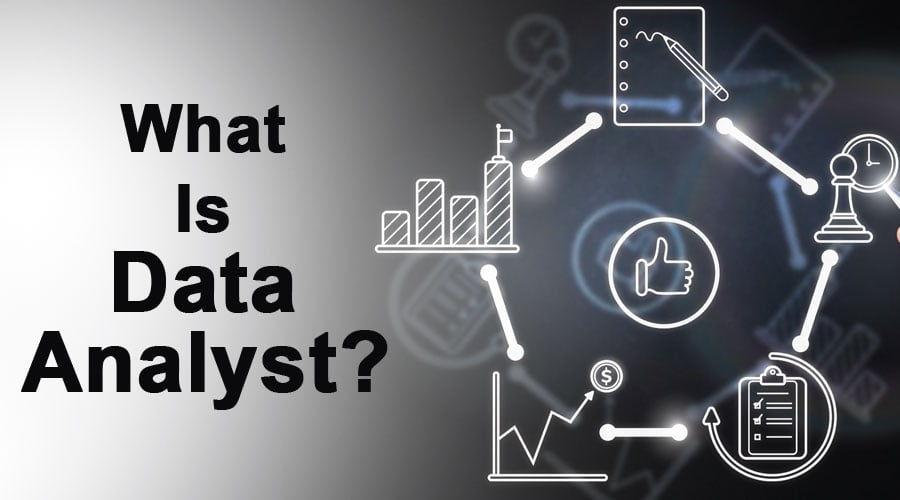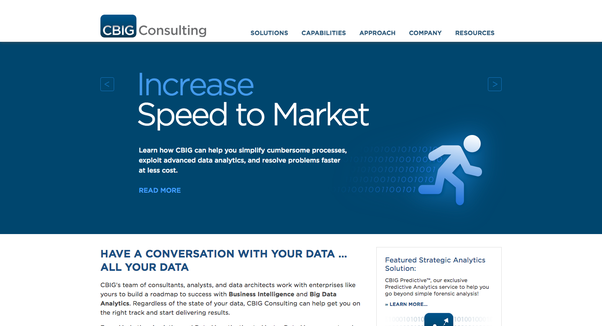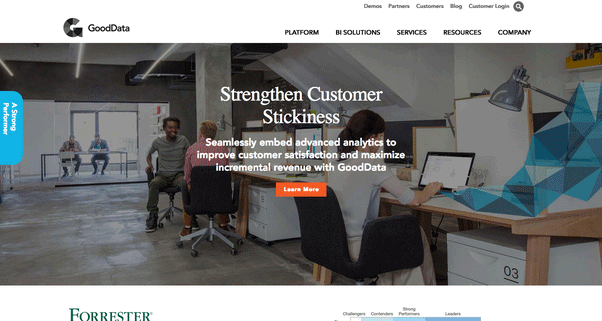Updated June 21, 2023
Introduction to Data Analyst
The analyst is called Data Analyst, who inspects, cleans, transforms, and models data to conclude useful information from the given data. They help form good conclusions and hence in proper decision-making from the data. They help in the organization’s business by making better decisions. The essential skills of a data analyst include knowledge of SQL, programming language, and analytical skills. Many techniques involve analyzing, and a data analyst should be well-versed to do the analysis properly. Raw data has to be transformed into good information.
What is a Data Analyst?
There is a huge difference between a data analyst and a data scientist. People have confused data analyst and data scientist roles since they sound similar. It goes through the data and tries to identify the trends. What do the numbers in the data tell? What decisions can be made based on this data? What are some of the questions a data analyst asks while working on the data?
Data Scientists are experts at interpreting data with coding and mathematical models expertise. Most data scientists possess a Ph.D. or master’s degree in data analysis. They have hands-on experience in machine learning and programming and can create a new process for data models using a predictive model and data analyst work.
How does Data Analyst make Working so Easy?
It generally will retrieve the data, gather it, organize it, analyze it, and use it to come to a certain conclusion. Their work varies depending on the type of data they are working with (inventory, social media, sales, finance, etc.) or client project. They can provide valuable data to the company’s employers who want to know more about their customer and their needs. Companies in every industry can benefit from a data analyst’s insights.
They manage the database and help the company to make decisions based on it. Let’s consider an example of a data analyst working with a marketing company that provides mobile ads. Here they need to build profiles of mobile application users and deliver the ads relevant to the user over the platform. This will ensure higher returns when analyzing the advertising expenditure. It will also provide an enhanced user experience by giving them a more personalized feel over the ads.
Top Companies
The following are the top companies:
1. Mu Sigma
Mu Sigma is one of the world’s largest data analytics companies. Their company’s name is derived from the statistical terms “(μ),” which stands for Mu, and “(σ)” for sigma, which represents the mean and standard deviation of a probability distribution.
The company was founded by Dhiraj Rajaram in 2004, who is also the company’s current CEO. They provide services in marketing analytics, demand analytics, network planning, optimization, transportation analytics, risk analytics, sourcing analytics, etc.
2. Simplify360
It is a social business intelligence firm that provides Monitoring and analytics, Dashboard and reporting, Channel analytics, CRM, and workflow services. They have many prestigious clients on their client list.
3. CBIG Consulting
CBIG provides clients with Business Intelligence (BI), Data Warehouse (DW), and Big data analytics services. They also deliver data-centric initiatives, which include Predictive analytics, Marketing analytics, operational analytics, Cloud analytics, Data science, etc. CBIG is one of the best data analytics companies that will help you to get on the right track and start delivering results regardless of the state of your data.
4. GoodData
GoodData markets big data analytics software and Business Intelligence (BI) for cloud computing. Roman Stanek founded the company in 2007 under the name “Good Data Corporation.” With GoodData, a company can empower its business by distributing targeted analytics to all members of your business locations, including customers and partners.
5. PricewaterhouseCoopers (PWC)
PricewaterhouseCoopers, also known as PwC, are the largest professional services firm in the world. It was formed in 1998 by a merger between Price Waterhouse, Coopers, and Lybrand. PwC, with the help of its platform, helps to optimize the data assets and make faster and better decisions. With its leading data and analytics services, pwc helps create a data framework, build the strategy, optimize the infrastructure, and helps to create a culture to become a data-driven organization.
6. Deloitte
Deloitte is a multinational professional services network and one of the “Big Four” accounting organizations. Deloitte turns information into useful and actionable insights by understanding the decision maker’s role to maximize analytics value.
Solutions that Deloitte provides are:
- Advanced analytics
- Enterprise data management
- ERP analytics
Deloitte’s analytics approach combines deep industry knowledge and functional experience with technology.
7. KPMG
KPMG is a professional service company and one of the big four auditors, along with PwC, E&Y, and Deloitte. KPMG’s analytics, information, and modeling help organizations solve the mystery of huge data and show them how to affect their data resources to produce better business output.
KPMG provides analytical services in the following fields:
- Consumer market
- Energy and natural resources
- Healthcare
- Technology and telecommunications
- Financial services
What can you do with a Data Analyst?
A data analyst is more than just a number cruncher. An analyst reviews the given data and determines how it can be used to solve real-life problems or help a company grow its business. Analysts work with shareholders and managers to know their vision and provide them with insights on how data will help them achieve it.
Analysts help a company to plan by evaluating the efficiency at which a company runs its operations daily with the help of data. They can also yield results related to forecasting more or less demand from customers, and data measurements can be used for accounting and financial operations during budgeting and project management to measure project duration and employee efficiency.
Working with a Data Analyst
Working with them is fun as you learn different aspects of data and find meaningful information. They help you to understand how to translate numbers into plain English so that every business collects data related to sales figures, market research, logistics, or transportation costs.
They also require good communication skills to write and speak clearly and easily communicate complex ideas; this will help a person to improve his communication skills. Mathematics is one of the essential parts of analysis as a data analyst needs maths skills to estimate numerical data and plot the data on a graph or chart; working with an analyst will also help a person improve his logical thinking and mathematical skill.
Advantages
- A data analyst helps detect errors from a dataset and, with the help of data cleansing, improves the data quality, which ultimately benefits both institutions and customers such as the bank, finance companies, etc.
- They work on a recommendation system mostly used by online retailers like Flipkart, Amazon, eBay, etc., where an analyst provides the most probable item that a user will like next by mining previous data.
- An analyst can also help a bank to identify probable fraudulent customers based on analysis made of historical data.
- Security agencies also use data analysts for surveillance and monitoring purposes based on a huge number of information collected and processed by analysts.
They give you the answer to the following questions:
- What is the current scenario?
- What has happened?
- Will it affect the business in a good way or a bad way?
- Why did it happen?
- How will it affect the company’s growth in the future?
- What is the possible outcome?
- How to prevent this?
Required Skills
To become a data analyst, one needs to have a natural understanding of math and statistics; the following are the basic requirement:
1. Statistics
A person should have a thorough knowledge of statistics, from basics like mean, median, and mode to advanced topics like real analysis, graph theory, and numerical analysis.
2. Mathematics
Along with statistics, mathematics is also an essential subject a person should have depth knowledge of. Linear algebra is applied in various areas of data analytics, including regression analysis, data structure comprehension, and data preparation for predictive data modeling.
3. R and Python
Python and R have extensively utilized tools in analytics for various purposes. Python is easy-to-learn programming, providing different statistics and mathematical libraries like numpy, scipy, sci-kit-learn, matplotlib, etc. In contrast, R provides advanced computing capabilities, graphical capabilities, and advanced tools.
4. Query Languages
A person wanting to work as a data analyst should be hands-on with the query languages like SQL, Hive, PIG, etc. SQL is a general-purpose language that is used for transactional queries. SQL is used primarily daily, but the only downside is that it does not support petabytes of data.
Hive is a Hadoop query language introduced by Facebook that can support terabytes and petabytes of data. PIG is used during the processing of both structured and unstructured data.
Data Visualization
Having all the data is not enough, as you must also bring it to life. There are different data visualization tools that a data analyst can master, e.g., Tableau, Oracle Visual Analyser, SAS Visual Analytics, and Microsoft Power BI. Using these tools, a data analyst needs to make reports and communicate these findings to the top management.
Scope
Glassdoor named the Data Analytics job the “best job of the decade.” There is a huge demand-supply gap for analytics professionals as there are more requirements and fewer data analysts. Data professionals are primarily statisticians, engineers, data miners, and IT professionals. Companies always search for the best data analysts to boost their research and analysis departments. Data engineering plays a vital role in finance and Capitalization. Individuals in data analytics roles typically engage in more research-based work than non-technical ones.
Who is the Right Audience for Learning Data Analyst?
Data analysis is an in-demand and lucrative career. A person who enjoys playing with data can become a data analyst with a good pay scale. Anyone can become a data analyst and pursue a career because it’s all about Matrices, calculus, integrals, and statistics. A person with even basic knowledge of these topics can become a perfect data analyst by doing online certificate courses and gaining practical and theoretical knowledge.
How will this Technology help you in Career Growth?
It uses massive data to work on current trends and make forecasts. The demand for a data analyst is very hot, and well-known universities have started running courses and programs focused on data analysis.
A beginner working as a data analyst can master the domain with experience. He/she can, in the future, start an analytical firm and help clients achieve their goals by providing valuable insights and information. The growth of an individual as a data analyst is immense since everything is related to data in today’s world, whether it is social media or financial growth. Companies are willing to pay any amount of money to get the correct data to use further for their growth.
Conclusion
This is the age of big data, where billions of data are generated daily, and only a few hundred are processed. This is because of the shortage of data analysts in the market. They play a key role in a company by providing valuable data, which ultimately helps a company’s growth. This is the most demanded job in the century, and they are here to stay.
Recommended Articles
This has been a guide to What is Data Analyst? Here we discussed the working and advantages of Data Analyst with top companies that implement this technology. You can also go through our other suggested articles to learn more –











